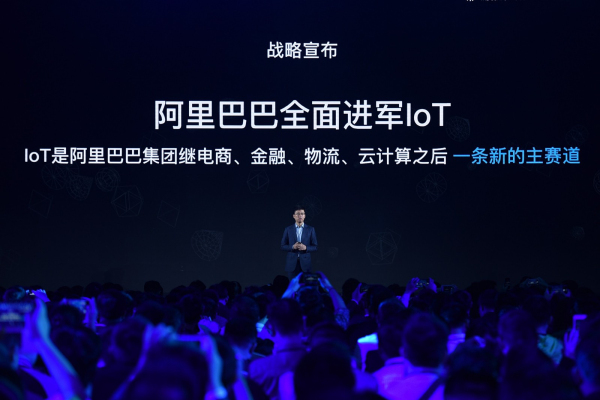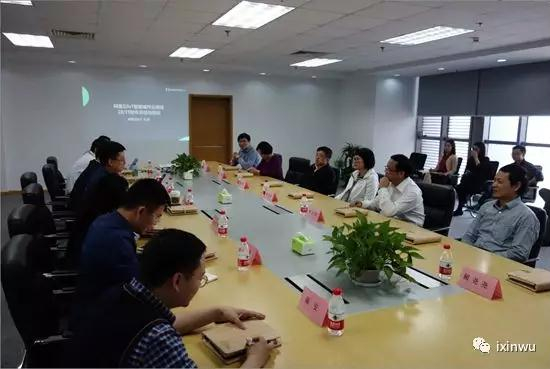Wuxi to be center for Alibaba's IoT industry development


Simon Hu, senior vice-president of Alibaba Group Holding and president of Alibaba Cloud, announces on March 28 at the Computing Conference Shenzhen Summit in Shenzhen that the e-commerce giant is stepping up efforts to explore the internet of things. [Photo/sohu.com]
Alibaba Group Holding has announced plans to build a network of 10 billion interconnected devices within the next five years as part of its plan to increase efforts to explore the internet of things.
"Our vision is to build an interconnected smart world through transformative IoT technology," Simon Hu, senior vice-president of Alibaba Group Holding and president of Alibaba Cloud, said on March 28 at the Computing Conference Shenzhen Summit in Shenzhen.
"Along with e-commerce, finance, logistics and cloud (services), IoT will command focus and resources and become a new strategic tool for Alibaba."
For the past 20 years, the internet has been the internet of people, but for the next 20 years it will be the Internet of Things, Hu said.
IoT refers to a network of internet-connected physical devices that can gather, send and receive data.
Alibaba Cloud, the cloud-computing arm of Alibaba, established its IoT business unit in April 2017, with its services extending to the household, manufacturing, smart city and automobile sectors.
It worked with Wuxi to build the first IoT town in Hongshan, where every "thing" in the town is connected by IoT.
It has also developed an operating system, AliOS, which currently powers more than 500,000 internet cars entering the market.
According to IDC, a consulting firm, world spending on IoT reached $736.9 billion in 2016. The figure is expected to reach almost $1.3 trillion by 2020.

The delegation from Alibaba visits Wuxi Hi-tech district on April 1 to discuss the development of the IoT industry in Wuxi. [Photo/WeChat account: ixinwu]
The delegation, led by Simon Hu, then held further discussions with Gao Yaguang, vice mayor of Wuxi, in Wuxi Hi-tech district on March 1.
Gao Yaguang welcomed the delegation and expressed her belief that with the support of Chinese e-commerce giant Alibaba, Wuxi's IoT industry is bound to extend to more fields and help bring about the transformation of traditional industries.
"Wuxi Hi-tech district is the primary force behind 'smart city' construction in Wuxi. We hope Alibaba can be Wuxi's industry polymerization leader."
Simon Hu acknowledged Wuxi's edge in IoT after ten years of development, "Alibaba will make Wuxi its IoT development center and encourage other IoT enterprises to join the Alibaba Cloud projects."







